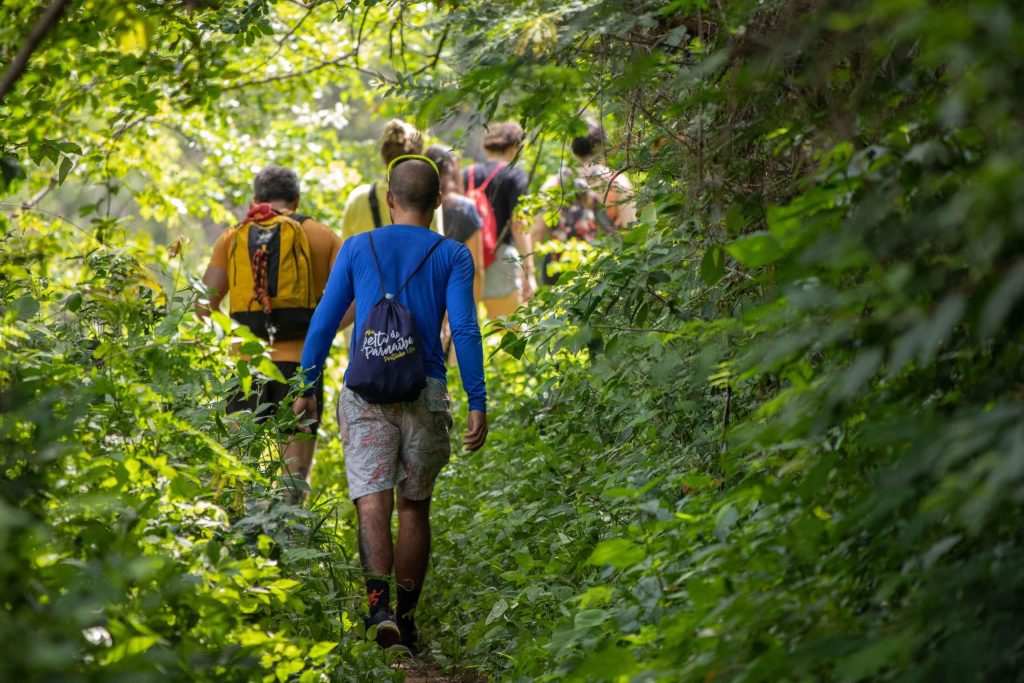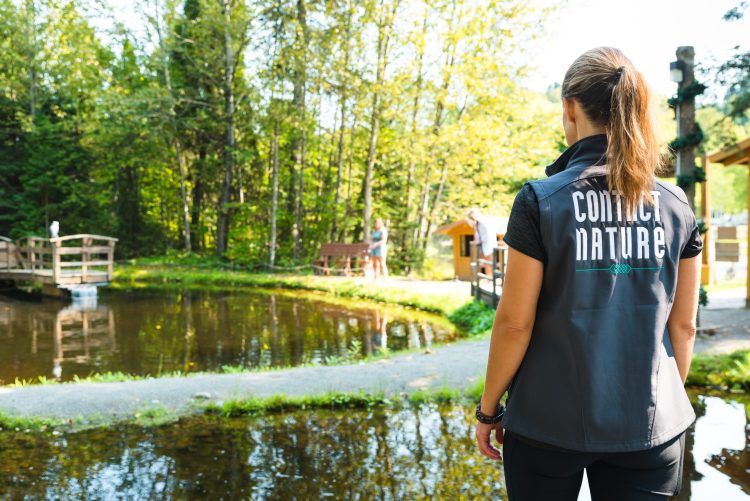Introduction
In our fast-paced, technology-driven world, many of us are increasingly disconnected from the natural world. With the rise of urban living, screen time, and digital interactions, it’s easy to forget about the powerful and ancient connection between humans and nature. Yet, this connection is one of the oldest forms of healing, and it is increasingly being proven by modern science to have profound benefits for our mental, emotional, and physical well-being.
Long before the advent of medicine, pharmaceuticals, and modern therapies, our ancestors intuitively turned to nature for healing. They sought solace in forests, found energy from the sun, and healed their bodies with the rhythm of natural cycles. Today, scientific research is catching up with this age-old wisdom, revealing that spending time in nature—whether by walking through a forest, gardening, or simply soaking up the sun—has measurable benefits for health.
So, have we been neglecting one of the most ancient and effective forms of healing? Let’s explore why reconnecting with nature is not only a powerful remedy but an essential part of human health.
1. Nature as an Ancient Healer
From the very beginning of human existence, nature has been a central part of our survival and well-being. Early humans learned to live in harmony with their environment, using plants for food, shelter, and medicine. Ancient cultures around the world—whether the Chinese, Native Americans, or Greeks—recognized the therapeutic qualities of nature. Healing practices such as herbalism, aromatherapy, and even the art of forest bathing were born from this connection.
Shinrin-yoku (Japanese for “forest bathing”) is one such ancient practice that has gained global popularity in recent years. It refers to the practice of immersing oneself in the forest atmosphere and soaking in the sights, sounds, and smells of the trees. This simple, yet profound, activity has been shown to significantly reduce stress, enhance mood, and improve overall well-being.
The wisdom of ancient cultures has long acknowledged that nature offers healing not just physically but emotionally and spiritually. But it wasn’t until recently that science began to substantiate these claims, providing a clearer picture of how nature promotes health.
2. The Science Behind Nature’s Healing Power
While the connection between humans and nature has been known for centuries, it’s only in recent decades that modern neuroscience, psychology, and medicine have started to uncover the specific mechanisms through which nature heals. Here are some key ways in which nature acts as a powerful healer:
2.1 Nature Reduces Stress
One of the most significant findings in modern research is that exposure to nature significantly reduces stress levels. In a 2015 study published in the journal Scientific Reports, researchers found that just a 20-minute walk in a natural setting (as opposed to an urban setting) lowered levels of the stress hormone cortisol in participants’ saliva. This is because natural environments help activate the body’s parasympathetic nervous system, which is responsible for the “rest and digest” response, promoting relaxation and recovery.
Walking through a park, sitting under a tree, or even just gazing at the ocean can calm the mind, reduce heart rate, and promote a sense of peace. Nature’s natural rhythms—the sound of flowing water, the rustling of leaves, or the sight of birds—help regulate the body’s stress response, creating a soothing effect on the nervous system.
2.2 Nature Boosts Immunity
Exposure to nature has also been shown to boost immune function. In a study conducted in Japan, researchers found that spending time in forests led to an increase in natural killer (NK) cells, a type of white blood cell that plays a key role in the body’s immune response. Forest environments, specifically, have been shown to improve immune function by increasing the activity of these NK cells, which help combat infections and even cancer cells.
The increased levels of phytoncides—aromatic compounds released by trees—are believed to be one of the reasons why forest environments have such a strong positive effect on the immune system. These compounds have been shown to increase the number of NK cells in the body, boosting the overall strength of the immune system.
2.3 Nature Improves Mental Health
The positive effects of nature on mental health are profound. Numerous studies have shown that spending time outdoors can significantly reduce symptoms of anxiety, depression, and attention deficit disorders. For example, a 2015 study found that individuals with depression who took a 90-minute walk in nature showed lower levels of rumination (the repetitive, negative thinking associated with depression) compared to those who walked in an urban environment.
Nature’s ability to promote mental health can be attributed to its capacity to create a sense of calm and groundedness. Natural environments provide a sense of awe and wonder, which can stimulate positive emotions and help individuals reconnect with themselves and the present moment. This is why practices like forest bathing and outdoor mindfulness have become so popular for treating mental health conditions.
2.4 Nature Enhances Creativity and Cognitive Function
Spending time in nature also has cognitive benefits. Research has shown that natural environments improve creative thinking and problem-solving skills. A study published in Psychological Science in 2014 demonstrated that individuals who took a break to immerse themselves in nature showed a marked improvement in their creative problem-solving skills compared to those who took a break indoors or in an urban environment.
Nature’s influence on cognitive function may be linked to its ability to reduce mental fatigue. Natural environments provide restorative experiences that help refresh the mind, making it easier to concentrate and think clearly. This phenomenon is part of what’s called the restorative effect of nature, which enhances mental clarity and attention.
2.5 Nature and the Gut-Brain Connection
The connection between nature and gut health has also emerged as a fascinating area of study. The gut microbiome, which consists of trillions of bacteria in our digestive system, plays a crucial role in regulating both physical and mental health. Research has shown that spending time in nature can positively influence the gut microbiome, improving digestion, boosting immunity, and even influencing mood.
Nature, especially through activities like hiking, gardening, or simply walking on natural surfaces, helps balance the gut microbiome. This in turn has a cascading effect on brain function, reducing anxiety and improving mood through the gut-brain axis.

3. How Can You Reconnect with Nature?
Given the extensive benefits of nature for overall health, the question is: how can we reconnect with nature in today’s modern world?
3.1 Take Regular Walks in Nature
It doesn’t require a weekend camping trip to reap the benefits of nature. Even a daily walk in a nearby park or along a tree-lined street can have significant positive effects on your health. Try to immerse yourself in the natural world by paying attention to the sounds, sights, and smells of the environment.
3.2 Practice Forest Bathing (Shinrin-yoku)
Shinrin-yoku, or forest bathing, involves immersing yourself in a forest environment and allowing your senses to fully absorb the natural surroundings. Studies have shown that even short periods of forest bathing can reduce cortisol levels and increase feelings of well-being. The key is to slow down, breathe deeply, and engage with the natural environment on a sensory level.
3.3 Start Gardening or Spend Time Outdoors
Gardening is another excellent way to reconnect with nature. Tending to plants, nurturing life, and engaging with the earth can help reduce stress, promote relaxation, and enhance feelings of accomplishment and connection.
Even if you don’t have access to a garden, spending time in a community garden or in natural spaces like a park can yield similar benefits.
3.4 Unplug and Go Off the Grid
One of the best ways to reconnect with nature is to disconnect from technology. Consider taking a weekend trip to a cabin in the woods, going camping, or spending time in a rural area where you can enjoy the simplicity of nature without the distractions of smartphones, emails, and social media.
4. Conclusion: The Timeless Power of Nature
In a world that increasingly demands our attention, it’s easy to overlook one of the most ancient and proven healing forces—nature. Whether through stress reduction, immune enhancement, mental clarity, or emotional balance, nature offers a wealth of benefits that we can no longer afford to ignore.
The good news is that reconnecting with nature doesn’t require dramatic changes or significant effort. By taking small steps—like walking in the park, practicing mindfulness outdoors, or simply taking time to breathe in the fresh air—we can begin to heal our minds, bodies, and spirits.
The next time you find yourself overwhelmed by the pressures of modern life, remember: the natural world is waiting to help you restore balance. Reconnect with nature, and rediscover the healing power that has been available to humanity for millennia.








































